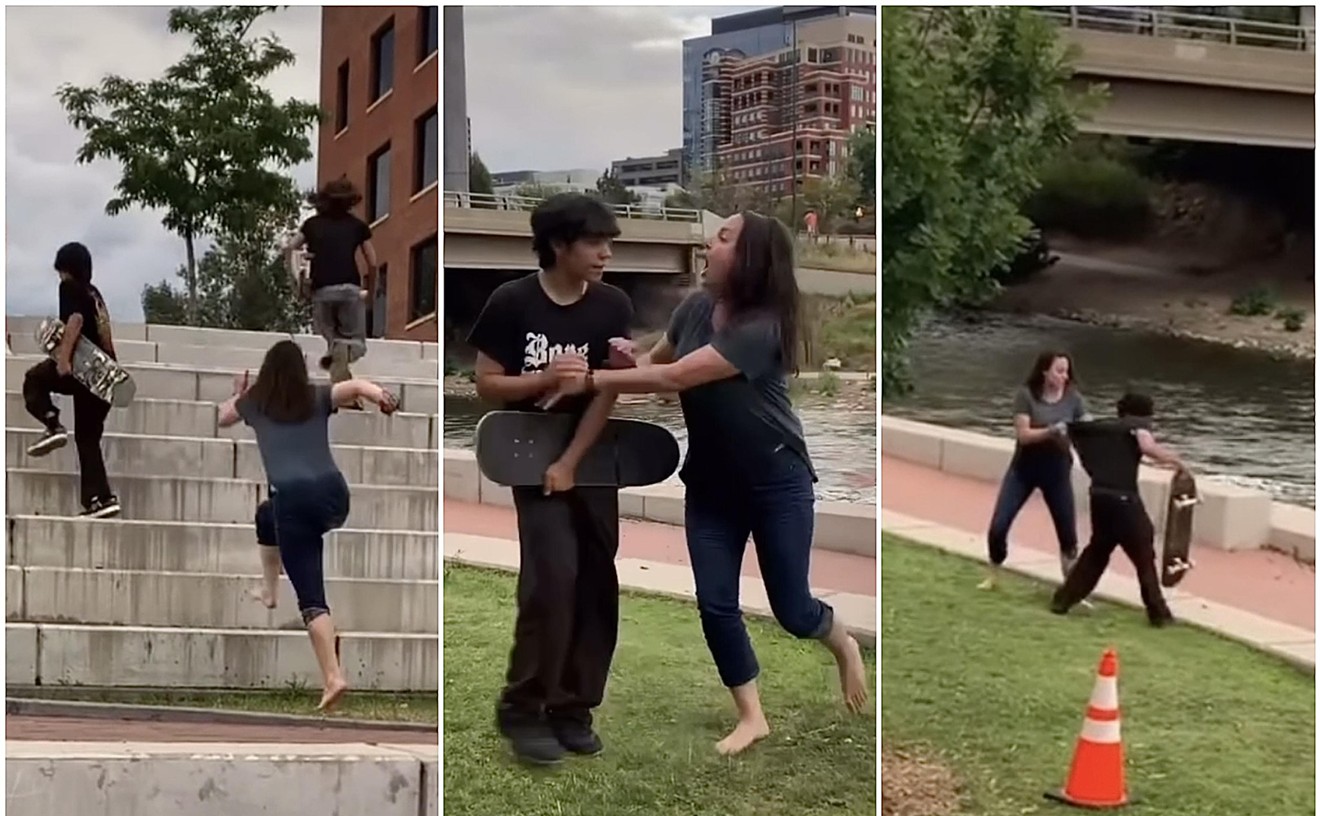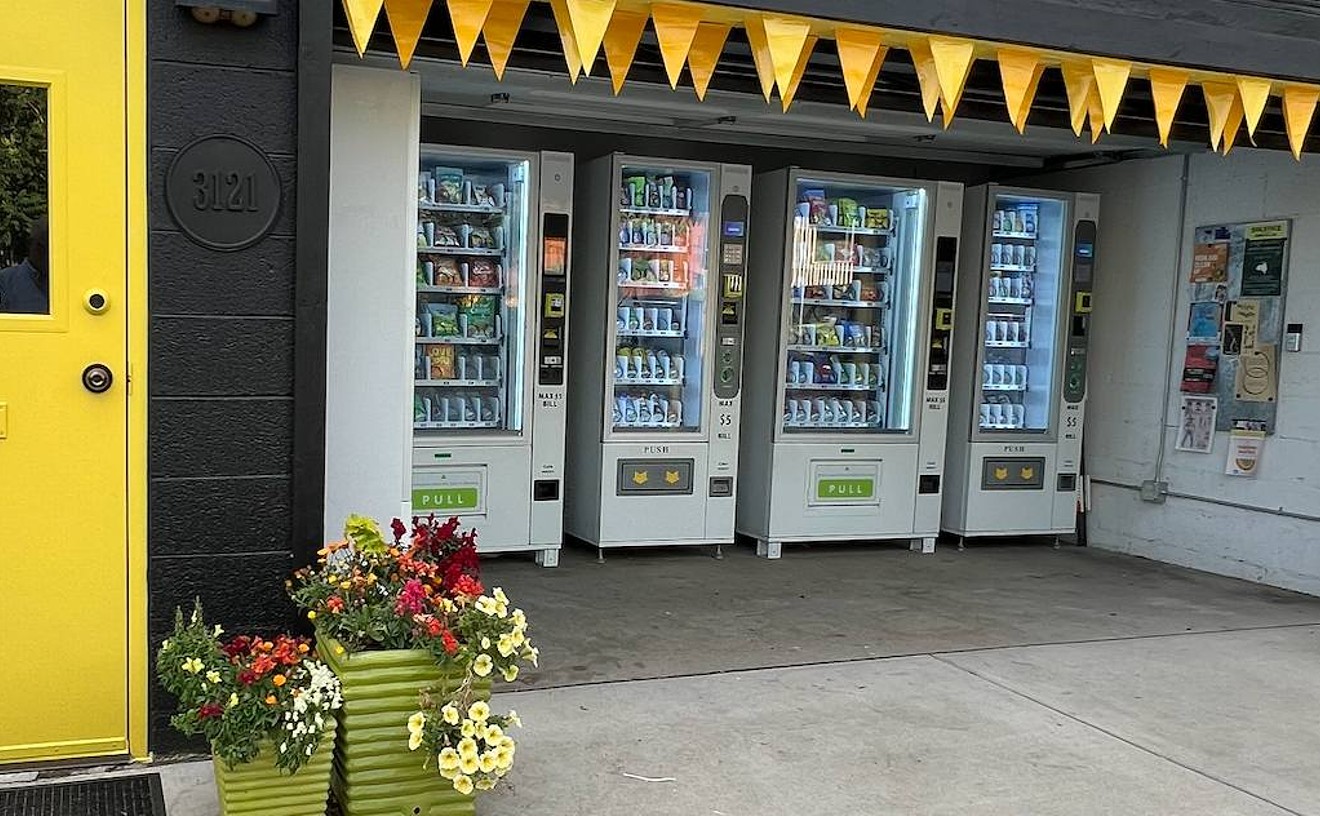If you've already gotten COVID-19, it's very unlikely that you'll catch it a second time — but it does happen. The Colorado Department of Public Health and Environment has documented nearly 3,000 reinfection cases.
"COVID-19 reinfections are reported when a person has a repeat positive molecular test more than three months after their initial positive test," reveals a CDPHE spokesperson, noting that the several-month gap is intended to insure that the first case has ended, rather than simply lingered at a lower level. As of early August, 2,963 reinfections had been confirmed — a tiny percentage of the 581,692 overall cases in the state counted by the department through today, August 9, but enough to cast doubt on theories that COVID survivors are so well protected by natural antibodies that they don't need to be vaccinated.
Late last month, at Westword's request, the CDPHE shared data about breakthrough cases — infections of people who were fully vaccinated. Although such cases are frequently cited by those who argue against immunizations, the CDPHE figures revealed that breakthroughs account for fewer than 5 percent of positive tests or hospitalizations across the state; the overwhelming majority of cases and hospitalizations continue to be among the unvaccinated. Moreover, the department points out, breakthrough cases tend to be milder than cases that strike individuals who haven't been inoculated.
There is research from some credible institutions that having already had COVID provides some protection. In May, the Washington University School of Medicine in St. Louis released research showing that "people who have had a mild case of COVID-19 are left with long-term antibody protection against future disease.... Such cells could persist for a lifetime, churning out antibodies all the while."
In June, the Cleveland Clinic offered a study based on the experiences of its own caregivers. The document noted that "rates of SARS-CoV-2 infection in vaccinated and unvaccinated individuals...showed that those previously infected who did not receive the vaccine did not have higher rates of SARS-CoV-2 infection than those previously infected who did, thereby providing direct evidence that vaccination does not add protection to those who were previously infected."
Nonetheless, a statement issued along with the study made it clear the Cleveland Clinic doesn't want its data used as an excuse to skip shots. "This is still a new virus, and more research is needed," it stated. "It is important to keep in mind that this study was conducted in a population that was younger and healthier than the general population. In addition, we do not know how long the immune system will protect itself against reinfection after COVID-19. It is safe to receive the COVID-19 vaccine even if you have previously tested positive, and we recommend all those who are eligible receive it."
The CDPHE echoes this advice. "Scientists are still learning more about how long you might be immune after recovering from COVID-19," the spokesperson points out, adding that "early evidence suggests natural immunity from COVID-19 may not last very long in some people.
"We recommend that every eligible Coloradan complete a full vaccination series with one of the three authorized vaccines, even if they previously had COVID-19."
The department bases this encouragement in part on a study from the federal Centers for Disease Control and Prevention made public on August 6. "Newly reported data indicate that vaccines provide a higher level of protection against SARS-CoV-2 than previous COVID-19 infection," the CDPHE notes. "Individuals with a previous COVID-19 infection who are unvaccinated are twice as likely to get a reinfection as those who are vaccinated."
In fact, according to the department spokesperson, "Colorado data indicate that unvaccinated people are 5-6 times more likely to be COVID-19 cases than vaccinated people."
People who've had COVID-19 are eligible for vaccination as soon as they've recovered from the illness and are no longer contagious — typically about ten days after symptoms start. However, individuals who've received COVID-specific antibody treatment while sick with the disease should wait at least ninety days before being immunized.
The department stresses that "anyone who has been exposed or has symptoms of COVID-19 should be tested. CDPHE currently requires regular rapid testing for all unvaccinated staff in residential care facilities and for residents who leave the facility for longer than 24 hours, as well as the Department of Corrections and Department of Human Resources facilities. Regular testing is not mandated by CDPHE for asymptomatic individuals in other settings at this time."
[
{
"name": "Air - MediumRectangle - Inline Content - Mobile Display Size",
"component": "12017618",
"insertPoint": "2",
"requiredCountToDisplay": "2"
},{
"name": "Editor Picks",
"component": "17242653",
"insertPoint": "4",
"requiredCountToDisplay": "1"
},{
"name": "Inline Links",
"component": "18838239",
"insertPoint": "8th",
"startingPoint": 8,
"requiredCountToDisplay": "7",
"maxInsertions": 25
},{
"name": "Air - MediumRectangle - Combo - Inline Content",
"component": "17261320",
"insertPoint": "8th",
"startingPoint": 8,
"requiredCountToDisplay": "7",
"maxInsertions": 25
},{
"name": "Inline Links",
"component": "18838239",
"insertPoint": "8th",
"startingPoint": 12,
"requiredCountToDisplay": "11",
"maxInsertions": 25
},{
"name": "Air - Leaderboard Tower - Combo - Inline Content",
"component": "17261321",
"insertPoint": "8th",
"startingPoint": 12,
"requiredCountToDisplay": "11",
"maxInsertions": 25
}
]












